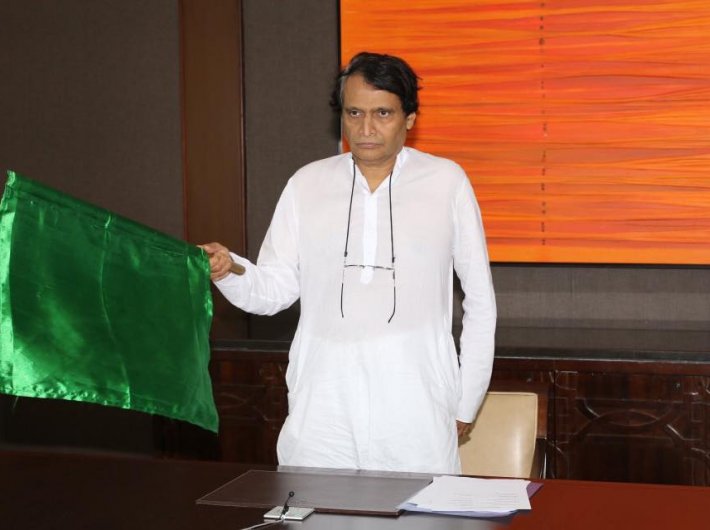Gone are the days of Lal Bahadur Shastri, Madhav Rao Scindia and Nitish Kumar who hogged the limelight and even moral space by resigning after train accidents that claimed human lives. Railway minister Suresh Prabhu is made of a different stuff. Despite a series of accidents under his watch, he is content to punish officials, forcing a member of the railway board and senior officials to go on leave and placing some under suspension.
Unlike his illustrious predecessors who were technologically not so savvy in those days, Prabhu has been furiously tweeting to let people know his angst. At the end of it, he has had his revenge after taking action against certain officials (euphemistically known as scapegoats). In his heart of heart, Prabhu knows – and nobody knows it better than him – that the accident that happened with the derailment of the Utkal Express on Saturday would not be the last.
Perhaps none of his illustrious predecessors, including those who took moral position, could muster enough courage to claim that they would make the Indian Railways free of accidents. They found discretion as better part of valour by resigning after accidents and occupy high moral ground. Prabhu has refused to be an escapist like them. He won’t even pretend to take that route. He is doing even worse, perpetuating the hegemony and opaqueness of a highly venal and criminal bureaucracy of the railway board.
Few know outside the government system that the Indian Railway’s bureaucracy, controlled by the highly insulated railway board, runs the most opaque system of governance. It does not allow any lateral entry of any outsider in the system. For instance, no other government officials or technical experts can find place in the railway board unless they belong to the services. Apparently, the complex system of the railways is presented as the reason for not allowing outsiders who would be alien to its bureaucratic culture.
None of the railway ministers in the past, it seems, could dare reform the bureaucratic structure in the railways that ran like a parallel government. The reasons for this hesitation are not far to seek. Being the largest employer among the public sector, the railways has to contend with strong trade union leaders. Redoubtable George Fernandes and several other socialist leaders owe their prominence to the railways where their call for nationwide blockades used to paralyse the country by stopping trains. Fernandes ran the Hind Mazdoor Sabha (HMS) that dominated the railways till the late nineties.
Though during the reign of Atal Bihari Vajpayee, Nitish Kumar made half-hearted attempts to reform the railways by initiating privatisation, he could not take it to its logical end. Despite knowing the fact that the railways’ bureaucracy had degenerated into the worst kind of a venal club of self-seeking individuals, his attempts at reforms were too feeble to register any change. Ministers like Mamata Banerjee and Lalu Prasad only aggravated the problem by introducing dubious practices within the system. So rotten became the system that a relative of union minister Pawan Kumar Bansal in the UPA regime was caught by the CBI selling reservation quotas to middlemen.
Ironically, the malaise that afflicted the railways was all known. With Narendra Modi as the prime minister whose acquaintance with the railways is quite profound (In his younger days he used to sell tea on a railway station), there was a certain degree of optimism that things would change. And Modi bolstered this hope by talking about bullet trains and superfast trains that promise to radically alter manner in which Indians travel. Three years down the line, with an impressive record of 27-odd railway accidents, hopes have given way to cynical despondency. Despite Modi’s war cry against “chalta hai” attitude in the government, the railways seem to have internalised the eternal principle of the babudom: “Yeh to aise hi chalega (it will run like this only)”.
In this context, it not surprising that the government has also reconciled with the reality by sending one railway board member on leave for a crime after which the entire railway board deserves to be dissolved. But that may require more focused and energetic approach to the problem than mere tweeting.
A version of this comment first appeared in FirstPost.

